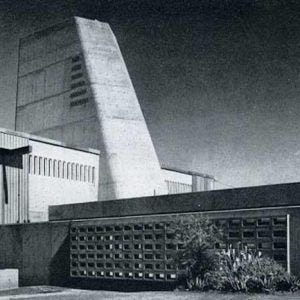 Indústrias Nucleares do Brasil (INB) has signed a contract with Amazônia Azul Tecnologias de Defesa (Amazul) to support expansion of the Isotopic Uranium Enrichment Plant at the Nuclear Fuel Factory (FCN – Fábrica de Combustível Nuclear) in Resende. Amazul will provide engineering services for the development of phase two of the plant.
Indústrias Nucleares do Brasil (INB) has signed a contract with Amazônia Azul Tecnologias de Defesa (Amazul) to support expansion of the Isotopic Uranium Enrichment Plant at the Nuclear Fuel Factory (FCN – Fábrica de Combustível Nuclear) in Resende. Amazul will provide engineering services for the development of phase two of the plant.
The first phase of the enrichment plant, which was completed in late 2022, has 10 cascades of ultracentrifuges in operation producing fuel for domestic NPPs. It enables INB to meet 70% of the demand for Angra 1, reducing dependence on foreign contracting services.
Currently, Brazil has two nuclear units in operation at Angra dos Reis, on the Costa Verde, in Rio de Janeiro. Angra 1&2, a total of 1.9GWe, generate 1.1% of the energy of the Brazilian Interconnected System. Angra 1, a 609 MWe Westinghouse pressurised water reactors (PWR), began operation in 1982 following long delays. Unit 2, a 1,275MWe PWR supplied by German Kraftwerk Union, began operation in 2000, again after long delays. Construction of Angra 3, a Siemens/KWU 1,405 MWe PWR began in 1984 but was suspended several times. The future of the plant, which is 65% complete, is still under discussion.
Implementation of the second phase of the enrichment plant will provide an additional 30 cascades of ultracentrifuges, which will guarantee Brazil self-sufficiency in uranium enrichment. By 2033, the company expects to be able to meet the fuel demand of Angra 1&2 and, by 2037, the needs of Angra 3.
INB President Carlos Freire Moreira said: “This venture should be a source of pride, not only for INB workers, but for all Brazilians, since isotopic uranium enrichment is a cutting edge and 100% national technology, developed by the Brazilian Navy in partnership with the Institute for Energy & Nuclear Research.”
The CEO of Amazul, Newton Costa, highlighted the importance of the partnership with INB, noting that the enrichment plant will give the company autonomy to supply fuel for the Angra plants, as well as for other national projects. “ And this contributes to diversifying the matrix and guaranteeing the country's energy security with clean sources and a positive impact on the fight against climate change.”
As well as the enrichment plant, INB's Resende fuel fabrication factory, designed by Siemens, has a capacity of 160 tonnes a year of pellet production and 280 tonnes a year fuel assembly production.






